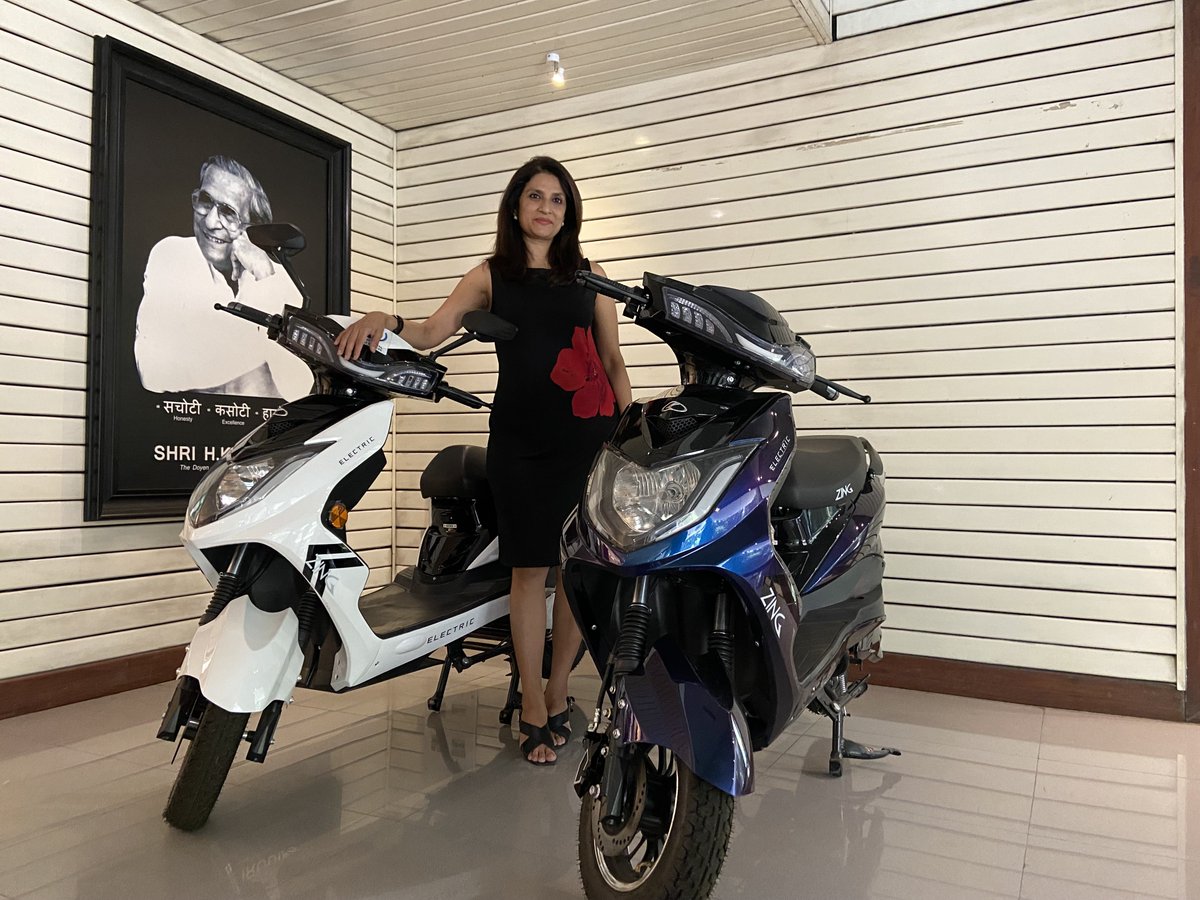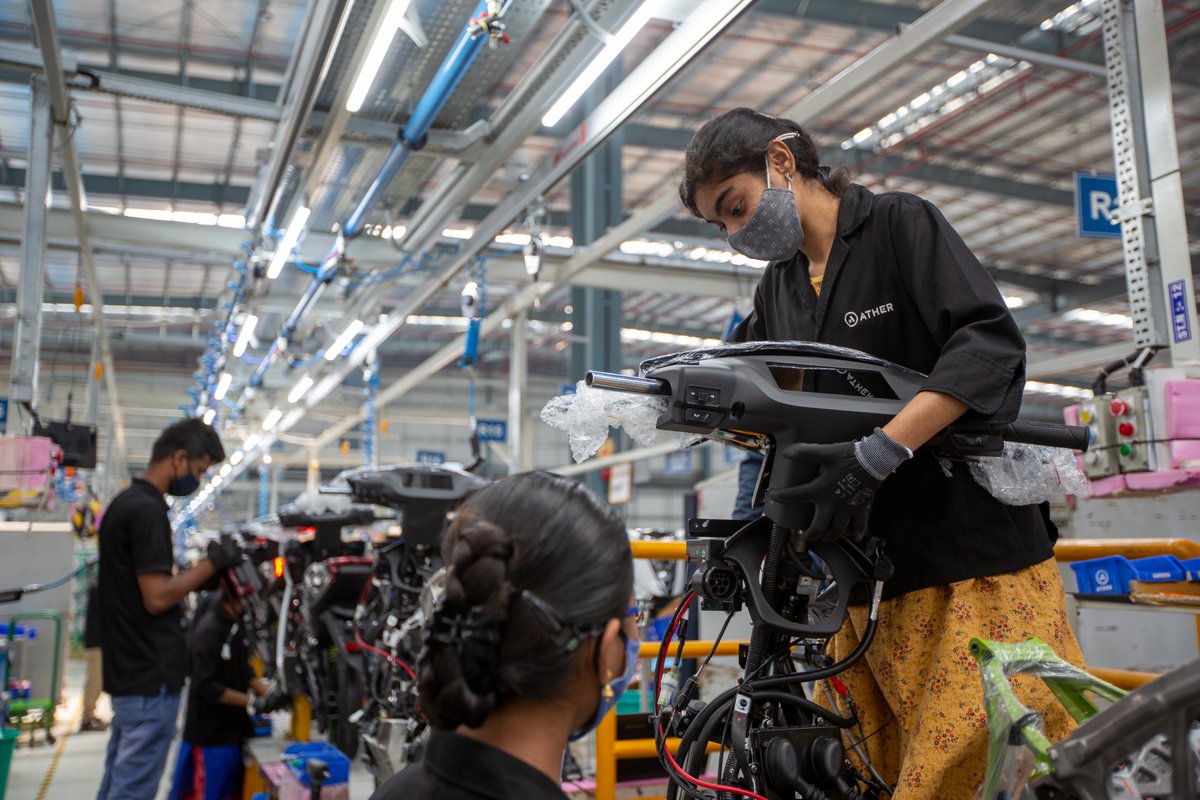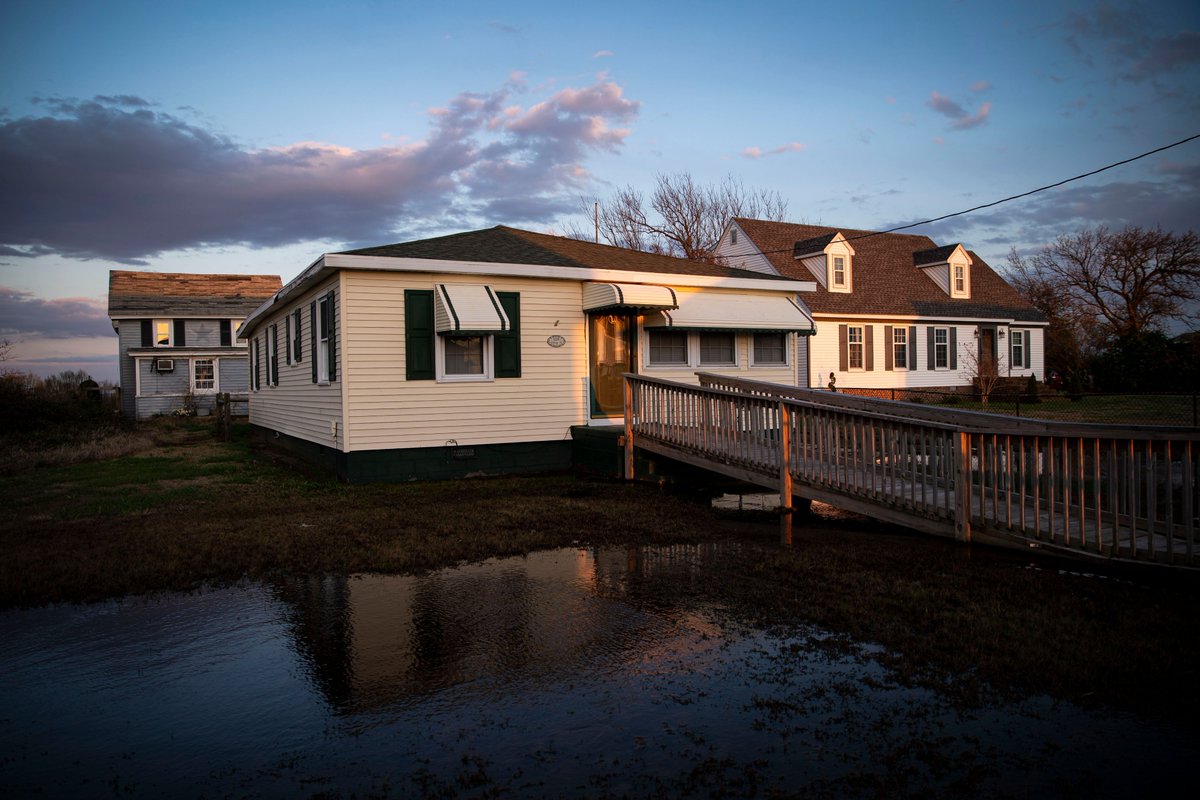
🚗 Electric vehicles are set to be the future of green transport - and women are driving the revolution in India.
⚡️ Its employment gender gap worsened across many sectors during the pandemic - except #EV manufacturing.
Meet the leaders & workers at the wheel of the industry 🧵
⚡️ Its employment gender gap worsened across many sectors during the pandemic - except #EV manufacturing.
Meet the leaders & workers at the wheel of the industry 🧵
♀️ This is Prabhjot Kaur, co-founder and CEO of Esmito Solutions.
🔋 The Indian start-up produces batteries as well as crucial battery-swapping stations for EVs.
As she's built her business, she's often had to patiently explain her job in meetings where she was the only woman.
🔋 The Indian start-up produces batteries as well as crucial battery-swapping stations for EVs.
As she's built her business, she's often had to patiently explain her job in meetings where she was the only woman.

⭕️ Prabhjot credits her father for her determination.
🥋 He persuaded her to go to karate classes where she was the only teenage girl.
🗣 "It translated into me being the best student... It also taught me not to fear my surroundings and so I never feared large groups of men."
🥋 He persuaded her to go to karate classes where she was the only teenage girl.
🗣 "It translated into me being the best student... It also taught me not to fear my surroundings and so I never feared large groups of men."

🟢 @SulajjaFirodia launched @KineticgreenEV, which sells electric vehicles.
🚘 Yet the start of her career in transport was tough.
After finishing university in the U.S. in the mid-1990s, she joined her family's auto business, only to be met with skepticism by staff.
🚘 Yet the start of her career in transport was tough.
After finishing university in the U.S. in the mid-1990s, she joined her family's auto business, only to be met with skepticism by staff.

But Sulajja has worked hard to shake up the male-dominated auto industry.
🚘 8 years ago, at a meeting with major auto brand reps, all men, she raised the fact that only 10% of people in India drove cars.
She has since made green mobility for the masses a policy priority.
🚘 8 years ago, at a meeting with major auto brand reps, all men, she raised the fact that only 10% of people in India drove cars.
She has since made green mobility for the masses a policy priority.

♀️ Both Prabhjot and Sulajja's stories highlight the challenges of breaking into a business that has traditionally been steered by men.
🚪 But as #EV sales surge in India, more doors are opening - including for thousands of women factory workers. tmsnrt.rs/3sExect

🚪 But as #EV sales surge in India, more doors are opening - including for thousands of women factory workers. tmsnrt.rs/3sExect


👷♀️ Pratibha Kumbhar is one of them.
⚡️ She trained in soldering and aimed for a career in electrical work before motherhood stalled her dreams.
🔋 But now she helps assemble #EVs in a Pune factory - her first job as a formal worker with fixed wages.
tmsnrt.rs/3sExect
⚡️ She trained in soldering and aimed for a career in electrical work before motherhood stalled her dreams.
🔋 But now she helps assemble #EVs in a Pune factory - her first job as a formal worker with fixed wages.
tmsnrt.rs/3sExect

♀️ As more women join the industry, they can bring new perspectives.
🛵 @mahuaacharya of @ConvergenceCESL says they often bring up issues men fail to spot, like highlighting safety and accessibility when setting up EV charging stations - not just power and land availability.
🛵 @mahuaacharya of @ConvergenceCESL says they often bring up issues men fail to spot, like highlighting safety and accessibility when setting up EV charging stations - not just power and land availability.

📈 Women-led businesses have also been key to growing the market for EVs.
💰 With non-profits and state authorities, Sulajja subsidised electric rickshaws as a new source of income for women drivers in Dantewada, as well as bicycle rickshaw pullers in Uttar Pradesh.
💰 With non-profits and state authorities, Sulajja subsidised electric rickshaws as a new source of income for women drivers in Dantewada, as well as bicycle rickshaw pullers in Uttar Pradesh.

♀️ The Indian government thinks the EV sector will create 750,000 jobs in the next five years.
Women are expected to fill a good share of the roles, from design to manufacturing.
"Women leaders are already inspiring many to join," says Munira Loliwala of TeamLease Digital.
Women are expected to fill a good share of the roles, from design to manufacturing.
"Women leaders are already inspiring many to join," says Munira Loliwala of TeamLease Digital.

📈 Boosting EV sales is also part of India's plan to tackle the #ClimateCrisis.
New policies aim to cut planet-heating emissions from fossil fuel transport by promoting the use of electric scooters, rickshaws and cars.
⛽️ Rising fuel prices are also helping the industry grow.
New policies aim to cut planet-heating emissions from fossil fuel transport by promoting the use of electric scooters, rickshaws and cars.
⛽️ Rising fuel prices are also helping the industry grow.

🌹 But the picture is not all rosy.
👷♀️Labour rights experts say that sometimes, firms prefer female workers because they are viewed as less likely to unionise - and tend to receive lower wages.
tmsnrt.rs/3sExect
👷♀️Labour rights experts say that sometimes, firms prefer female workers because they are viewed as less likely to unionise - and tend to receive lower wages.
tmsnrt.rs/3sExect

👗 Other manufacturing industries like clothing often hire women for these reasons.
🚨 Labour rights experts are urging EV companies to seize the opportunity to better protect workplace rights and equalise pay for women.
tmsnrt.rs/3sExect
🚨 Labour rights experts are urging EV companies to seize the opportunity to better protect workplace rights and equalise pay for women.
tmsnrt.rs/3sExect

♀️ @Rolionaroll and @AnuraNagaraj report on what it's like to be a woman working in India's fast-growing #ElectricVehicle sector: tmsnrt.rs/3sExect 

• • •
Missing some Tweet in this thread? You can try to
force a refresh















